For Product Registration and general enquires please contact us
Home Run
$9.99 – $199.99
Home Run cantaloupe seeds are an early Athena type cantaloupe with very good flavour. Thick flesh and attractive exterior netting. Not huge fruits, but very sweet and aromatic.
Shipping & Returns
West Coast Seeds ships anywhere in North America. However, we are not able to ship garlic, potatoes, asparagus crowns, bulbs, onion sets, Mason bee cocoons, or nematodes outside of Canada. We regret, we cannot accept returns or damages for orders outside of Canada. The minimum shipping charge to the US is $9.99.
Description
More details about Home Run
Home Run cantaloupe seeds are an early Athena type cantaloupe with very good flavour. Home Run cantaloupe was a hit from our 2010 melon trial. The vines were long and productive, with two main harvests in a greenhouse setting. Thick flesh and attractive exterior netting. Not huge fruits, but very sweet and aromatic. Growing cantaloupes at home allows you to pick the fruits from the vine at their peak of ripeness. The sugar content will be extremely high, and the depth of flavour is unlike any store bought cantaloupe you’ve ever tasted. For the extra effort melons require, they are absolutely worth it. Matures in 82 days. (Hybrid seeds)-
- Not huge fruits, but very sweet
- Long, productive vines
- Thick flesh
- Hybrid seeds
- Matures in 82 days
All About Home Run
Latin
Cantaloupes (musk melons) & Honeydews: Cucurbita melo
Watermelons: Citrullus lanatus
Family: Cucurbitaceae
Difficulty
Easy in a greenhouse or cloche, or outdoors in long, warm summers. Somewhat challenging without these conditions.
Season & Zone
Season: Warm season
Exposure: Full-sun
Timing
It is essential to start seeds indoors or in a greenhouse 4-6 weeks after the last frost date. Transplant when the plants are 5 weeks old. Optimal soil temperature for germination: 20-25°C (68-77°F). Seeds should sprout in 5-10 days.
Starting
Sow seeds 1cm (½”) deep. Set transplants 60-90cm (24-36″) apart in rows 1.5-2m (5-6′) apart.
Days to Maturity:
From transplant date.
Growing
Ideal pH: 6.0-6.8. Choose a warm, well-drained soil. Add dolomite lime and compost or well-rotted manure to the bed and ½-1 cup of balanced organic fertilizer beneath each transplant. Melons need warm growing conditions. Use black plastic mulch, cloches, or floating row covers. Success may improve in raised beds. Melons plants require 8-10 weeks of good, hot growing weather from the middle of June to the end of August. During that time, a melon vine must grow 5-9 leaves before starting to flower, then set 4 or more male flowers before making its first female flower, and then ripen its fruit before cool, damp weather sets in. Melons do not ripen off the vine. During the entire growing season, make sure to provide ample water.
Harvest
Fruit will ripen in late August to early September. Ripe cantaloupe will easily detach from the vine when light finger pressure is applied to the stem. Watermelon is ripe when the tendril nearest to the fruit withers and dries up.
Seed Info
In ideal conditions at least 60% of seeds will germinate. Usual seed life: 3 years. Per 100′ row: 60 seeds, per acre: 5.2M seeds.
Companion Planting
Melons are great companions for corn, marigolds, nasturtiums, pumpkin, radish, squash, and sunflowers. Avoid planting near potatoes. Melon leaves are full of calcium, so they’re good for the compost heap.






How to Grow Melons

Step 1: Timing
It is essential to start seeds indoors or in a greenhouse 4-6 weeks after the last frost date. Transplant when the plants are 5 weeks old. Optimal soil temperature for germination: 20-25°C (68-77°F). Seeds should sprout in 5-10 days.
Step 2: Starting
Sow seeds 1cm (½”) deep. Set transplants 60-90cm (24-36″) apart in rows 1.5-2m (5-6′) apart.
Step 3: Growing
Ideal pH: 6.0-6.8. Choose a warm, well-drained soil. Add dolomite lime and compost or well-rotted manure to the bed and ½-1 cup of balanced organic fertilizer beneath each transplant. Melons need warm growing conditions. Use black plastic mulch, cloches, or floating row covers. Success may improve in raised beds. Melons plants require 8-10 weeks of good, hot growing weather from the middle of June to the end of August. During that time, a melon vine must grow 5-9 leaves before starting to flower, then set 4 or more male flowers before making its first female flower, and then ripen its fruit before cool, damp weather sets in. Melons do not ripen off the vine. During the entire growing season, make sure to provide ample water.
Step 4: Germination
Days to maturity: From transplant date. In ideal conditions at least 60% of seeds will germinate. Usual seed life: 3 years. Per 100′ row: 60 seeds, per acre: 5.2M seeds.
Step 5: Harvest
Fruit will ripen in late August to early September. Ripe cantaloupe will easily detach from the vine when light finger pressure is applied to the stem. Watermelon is ripe when the tendril nearest to the fruit withers and dries up.
Tips!
Companion Planting: Melons are great companions for corn, marigolds, nasturtiums, pumpkin, radish, squash, and sunflowers. Avoid planting near potatoes. Melon leaves are full of calcium, so they’re good for the compost heap.Additional information
| Matures | in 82 days |
|---|---|
| Season | Warm season |
| Exposure | Full sun |
| Quantity | 0.25g, 0.6g, 3g, 11g, 22g |
You must be logged in to post a review.




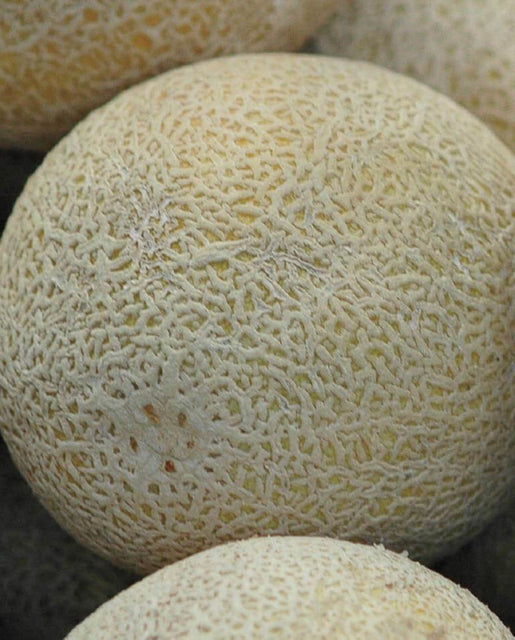
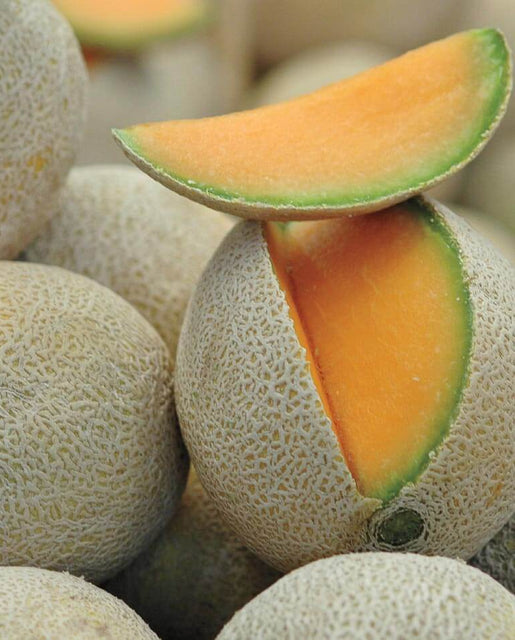
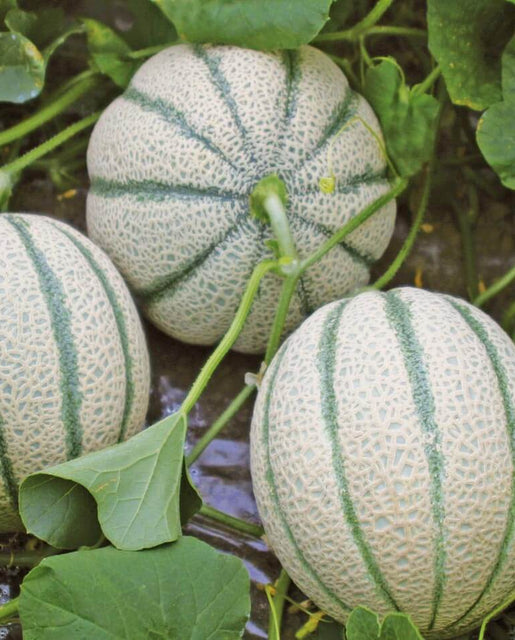
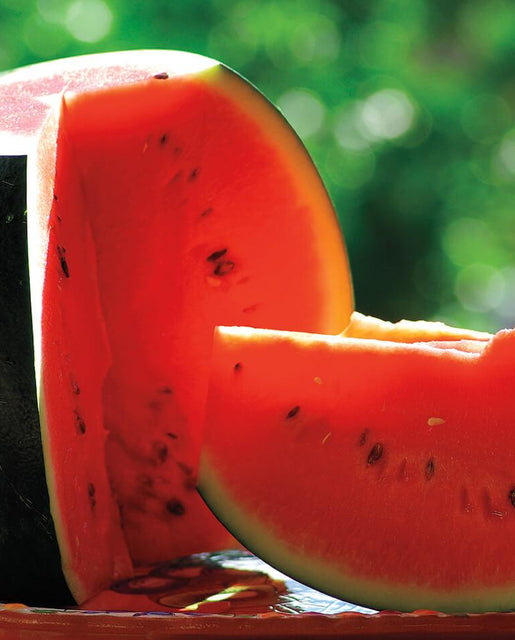
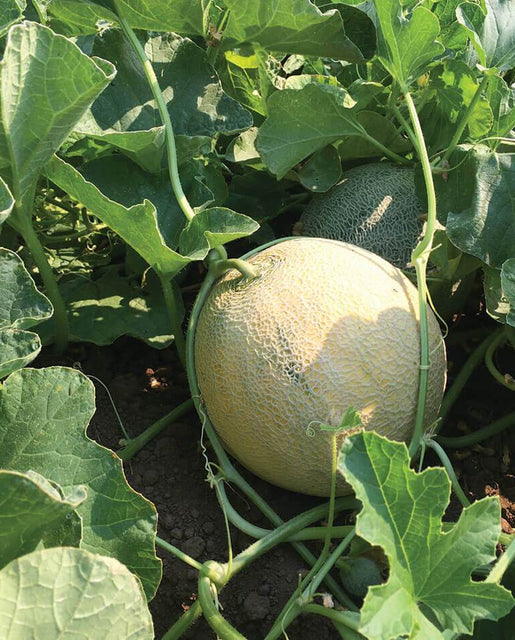
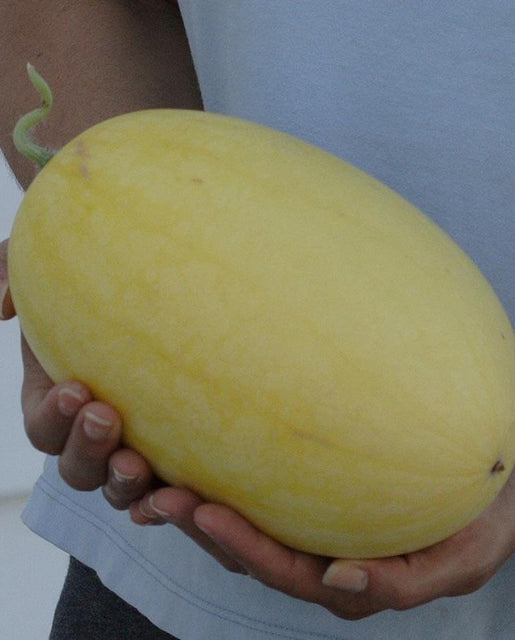
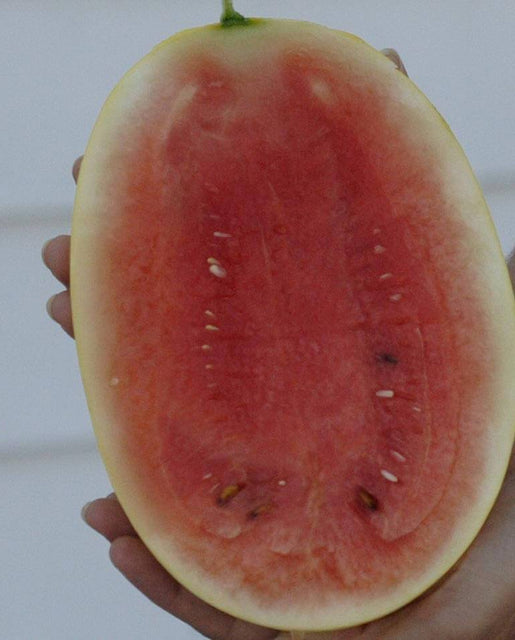




Reviews
There are no reviews yet.